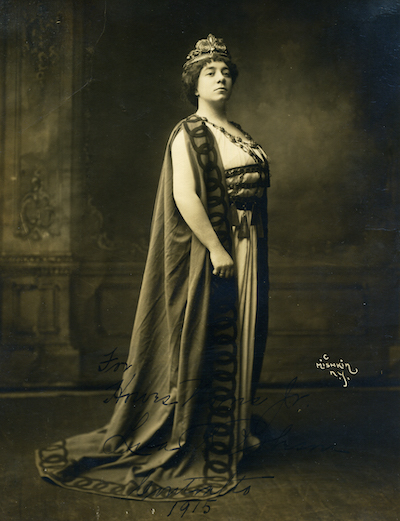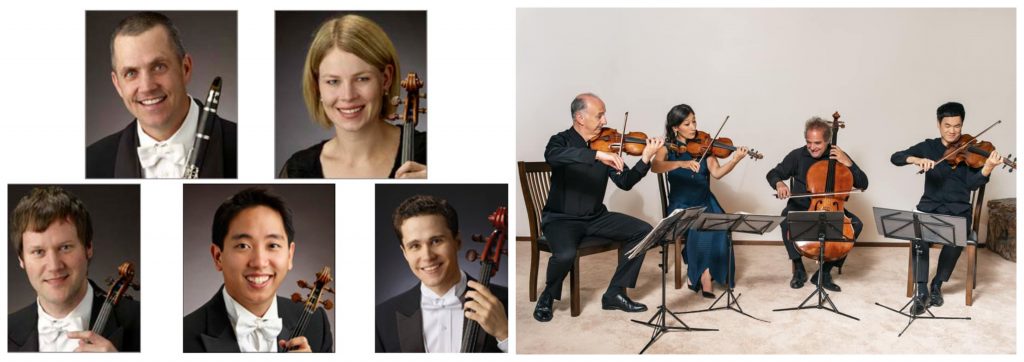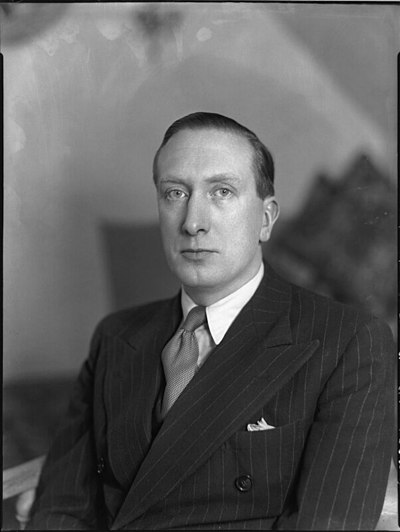by Jarrett Hoffman
CHAMBER MUSIC SOCIETIES:
Isn’t that kind of a glorious term if you stop and think about it? Now, skipping over the very few and very terrible monologue-style jokes that came to mind this morning (with references as up to date as the Great Society program and LBJ — note to self, fire my writers), let’s get to the latest from two of our stellar, local CMS’s.
First, the more time-sensitive option: “Nothing But Mozart” tonight at 7:30, a live stream from the Rocky River Chamber Music Society. Five Cleveland Orchestra musicians come together for the Clarinet Quintet and the C-Major String Quartet, K. 465. Click here at start time.
On the flip side, the Cleveland Chamber Music Society’s latest “Safe With Sound” program is available all month. The focus is on the Takács Quartet, through an interview with CCMS artistic director Eric Charnofsky, and through selections by Schubert, Price, and Bartók. Watch here.
TODAY’S ALMANAC:
A few Clevelanders to celebrate today, but first, a Cleveland happening: on this date in 1939, The Cleveland Orchestra gave the premiere of William Walton’s Violin Concerto with Jascha Heifetz as soloist and Artur Rodzinski conducting.
That only came about after several earlier plans were discarded: a performance at the 1939 New York World’s Fair (Heifetz couldn’t make the date work), then an opportunity for Walton to conduct it with the Boston Symphony (the start of World War II prevented him from travelling to the U.S. from his native England). And for that same reason, he couldn’t attend the eventual premiere in Cleveland.
There are also some odd and interesting facts and quotes surrounding the work. First, its commissioning seems to have prevented Walton (pictured above) from writing a violin-and-clarinet piece for Joseph Szigeti and Benny Goodman. Second, a tarantula bite inspired him to incorporate into the second movement a tarantella, a passage he described as “quite gaga…and of doubtful propriety.”
Here’s another great quote from Walton at the time he was composing the piece. And like any evil journalist, I’ll pull the juiciest part first: “I seriously advise all sensitive composers to die at the age of 37.” The context is that he could feel that trends in classical music were turning on him. “These days it is very sad for a composer to grow old — unless, that is, he grows old enough to witness a revival of his work…I’ve gone through the first halcyon periods, and am just about ripe for my critical damnation.”
When it comes to the Concerto at least, it turns out that he was partly wrong, partly right. In some corners it was praised, in others it was considered an inferior follow-up to his Viola Concerto, though critics mostly came around by the ‘90s and early 2000s. These days, it’s considered a key cog in Walton’s legacy. Too bad he didn’t live to find out — he died in ‘83.
Here are two locally-connected recordings of the Concerto to check out: violinist Zino Francescatii with The Cleveland Orchestra and George Szell (listen here), and frequent area visitor James Ehnes with the Vancouver Symphony and Bramwell Tovey (here).

After singing with the Met from 1912-22, Robeson returned to the area, taught voice, and was featured in The Cleveland Opera Co.’s 1923 production of Verdi’s Il Trovatore. She’s buried in Lake View Cemetery.
Other anniversaries to note today: the birth in 1863 of Italian composer Pietro Mascagni, and the death in 2004 of another Clevelander: Frederick Fennell. Read Daniel Hathaway’s previous Diary entry in honor of Fennell here.
IN THE NEWS:
Boston Globe reporter (and Oberlin alum) Zoë Madonna examines the “staggering gender inequities” of opera (“at every stage of training and career, female singers are ‘excluded or marginalized’”).
Slate’s Heather Schwedel digs into the thinking behind Spotify’s popular “2020 Wrapped” (it sounds a lot cooler to be in the top 1 percent of listeners than the top 3 million).
Variety’s Jem Aswad investigates a new bill that has been introduced in the Senate “that would allow musicians, technicians and producers to deduct 100 percent of recording production expenses in the year they are incurred, rather than in later years.”
And Classical Voice North America’s David Patrick Stearns looks back on Kirill Petrenko and the Berlin Philharmonic’s October 31 farewell to live audiences: a performance of John Cage’s 4’33” that was a little on the short side, but was in fact quite powerful (watch here).





